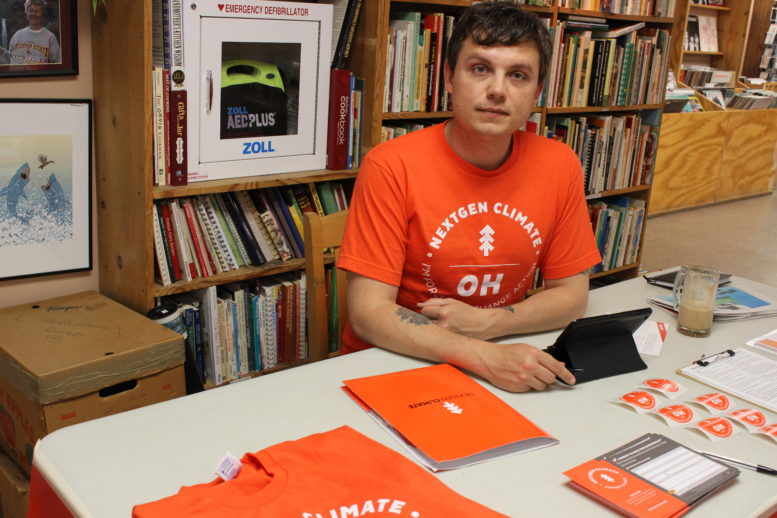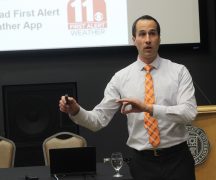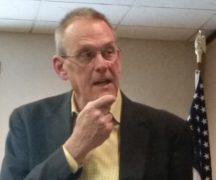By DAVID DUPONT
BG Independent News
With the primary season all but over and the Democrats and Republicans settled on their presumptive nominees, a national effort is under way to turn out young, environmentally aware voters in November.
NextGen Climate has been reaching out to college-aged voters since early this year urging them to pledge to vote for candidates who will take action to address climate change.
The effort started on campuses in Cincinnati, Cleveland, and Columbus and expanded to a dozen more campuses throughout the state, including Bowling Green State University. By fall the effort hopes to be on 60 campuses in Ohio.
“Our goal is to help young voters turn their passion for climate action into votes for climate champions,” said Joanne Pickrell, state director. “We want to harness the energy brought out by the primary and harness it to this important issue. “
Ohio is one of seven states NextGen Climate is focusing on. The others are Pennsylvania, Iowa, New Hampshire, Nevada, Illinois, and Colorado. The states were chosen, she said, because they are important to the presidential contest and because they have contested senatorial races.
“The response on college campuses has been great,” Pickrell said. “We believe that young voters want to vote on important issues in their lives like climate changes. Young voters want to see action on climate change. … We think this a huge issue for a large voting bloc.”
Millennials and Baby Boomers are the two largest voting blocks. A poll by USA Today/Rock the Vote found that the percentage of 18 to 34 year olds who say they are likely to vote has risen from 60 percent in January to 70 percent in March. Another poll taken late last year by ABC News/Washington Post found that 76 percent of 18 to 29 year olds thought climate change was a serious problem, with 63 percent of them saying it was a very serious problem, and 64 percent said the federal government should do something to address it.
“We want candidates to really talk about the benefits of acting on climate changing,” Pickrell said. “That includes the economic benefits.” Now only will these actions help the environment but they will create “great jobs,” she said.
“Candidates should be doing more to move forward toward real solutions on climate change,” she said.
NextGen Climate backs President Obama’s Clean Power Plan announced late last year. (https://www.whitehouse.gov/the-press-office/2015/08/03/fact-sheet-president-obama-announce-historic-carbon-pollution-standards).
The project has not endorsed any candidates. At this point they will compare and contrast their policies on the issues.
The goal is to register 40,000 young adults in Ohio. Beyond getting young voters to pledge to cast ballots, the cards will provide the information needed to create a database to stay engaged with them throughout the campaign and to get them to the polls when voting starts in the fall.
That means as students head back to school in a couple months, they’re likely to encounter NextGen Climate canvassers. “We’ll be at orientation,” Pickrell said. “We want to be one of the first organizations they see on campus.”





